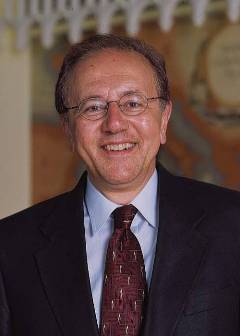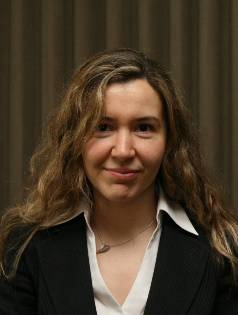2009 American Control Conference -- ACC2009
St. Louis, Missouri, USA
June 10 - 12, 2009
PLENARY SPEAKERS
Wednesday, June 10, 2009 George Verghese, Massachusetts Institute of Technology (MIT) "Getting to the Gray Box: Some Challenges for Model Reduction" George Verghese received his B. Tech. from the Indian Institute of Technology, Madras, in 1974, his M.S. from the State University of New York at Stony Brook in 1975, and his Ph.D. from Stanford University in 1979, all in electrical engineering. Since 1979 he has been at the Massachusetts Institute of Technology, where he is Professor of Electrical Engineering in the Department of Electrical Engineering and Computer Science, and a member of the Laboratory for Electromagnetic and Electronic Systems. His research interests are in modeling, estimation and control, particularly for switched or networked systems, and primarily in applications related to power systems and to biology/biomedicine. He is co-author (with J.G. Kassakian and M.F. Schlecht) of "Principles of Power Electronics" (Addison-Wesley, 1991), and co-editor (with S. Banerjee) of "Nonlinear Phenomena in Power Electronics" (IEEE Press, 2001). Dr. Verghese is a Fellow of the IEEE. |
|
 |
Thursday, June 11, 2009 Panos Antsaklis, University of Notre Dame "From Hybrid to Networked Cyber-Physical Systems"
Panos Antsaklis is the H. Clifford and Evelyn A. Brosey Professor of Electrical Engineering and Concurrent Professor of Computer Science and Engineering at the University of Notre Dame. He served as the Director of the Center for Applied Mathematics of the University of Notre Dame from 1999 to 2005. He is a graduate of the National Technical University of Athens (NTUA), Greece, and holds MS and PhD degrees from Brown University. His research addresses problems of control and automation and examines ways to design engineering systems that will exhibit high degree of autonomy in performing useful tasks. His recent research focuses on networked embedded systems and addresses problems in the interdisciplinary research area of control, computing and communication networks, and on hybrid and discrete event dynamical systems. After initial work on the Polynomial Matrix Descriptions and characterization of all stabilizing controllers, in the late 80s his group helped establish Autonomous Intelligent Control in the mainstream control research community; in the early 90s, introduced Supervisory Control of Discrete Event Systems (DES) using Petri nets; in the mid-90s helped establish Hybrid Control Systems and influenced its research directions. Since 2000 his group is involved in Sensor and Control Networks, Networked Control Systems, in the Distributed Control of Multi-agent Systems and in the analysis and synthesis of ubiquitous and complex Cyber-Physical Systems (CPS). There is a strong common thread that permeates all these research areas that led to the study of these research topics, namely the Quest for Autonomy in complex systems, wanting to build Intelligent, High Autonomy control systems. He has authored a number of publications in journals, conference proceedings and books, and he has edited six books on Intelligent Autonomous Control, Hybrid Systems and on Networked Embedded Control Systems. In addition, he has co-authored the research monographs "Supervisory Control of Discrete Event Systems Using Petri Nets" (Kluwer Academic 1998, with J. Moody) and "Supervisory Control of Concurrent Systems: A Petri Net Structural Approach" (Birkhauser 2006, with M.V. Iordache) and the graduate textbooks "Linear Systems" and “A Linear Systems Primer” (Birkhauser 2007, with A.N. Michel) He has been Guest Editor of special issues in IEEE Transactions of Automatic Control (April 98 & Sept 04) and the Proceedings of IEEE (July 00 & Jan 07) on Hybrid and on Networked Control Systems. He serves in the editorial boards of several journals, and he currently serves as AEAL of the IEEE Trans. Automatic Control. He has served as program chair and general chair of major systems and control conferences including the Conference on Decision and Control (PC of 1991 CDC and GC of 1995 CDC) and he was the 1997 President of the IEEE Control Systems Society (CSS). He has been plenary and keynote speaker in a number of conferences and research workshops. He currently serves as the president of the Mediterranean Control Association. He serves in the Scientific Advisory Board for the Max-Planck-Institut fur Dynamik Komplexer Technischer Systeme, Magdeburg, Germany. He was member of the subcommittee on Networking and Information Technology of the President’s Council of Advisors for Science and Technology (PCAST), which advises the President of the United States on Science and Technology federal policy issues regarding technology, scientific research priorities, and math and science education. He is an IEEE Fellow for his contributions to the theory of feedback stabilization and control of linear multivariable systems, was a Distinguished Lecturer of the IEEE Control Systems Society, is a recipient of the IEEE Distinguished Member Award of the Control Systems Society, and an IEEE Third Millennium Medal recipient. He was the 2006 recipient of the Brown Engineering Alumni Medal of Brown University, Providence, Rhode Island. He has been elected to be the new Editor-in-Chief of the IEEE Transactions of Automatic Control starting in 2009. |
 |
Friday, June 12, 2009 Asu Ozdaglar, Massachusetts Institute of Technology (MIT) "Learning and Dynamics in Networks" Asu Ozdaglar received the B.S. degree in electrical engineering from the Middle East Technical University, Ankara, Turkey, in 1996, and the S.M. and the Ph.D. degrees in electrical engineering and computer science from the Massachusetts Institute of Technology, Cambridge, in 1998 and 2003, respectively. Since 2003, she has been a member of the faculty of the Electrical Engineering and Computer Science Department at the Massachusetts Institute of Technology (MIT), where she is currently the Class of 1943 Career Development Associate Professor. She is also a member of the Laboratory for Information and Decision Systems (LIDS) and the Operations Research Center (ORC) at MIT. |